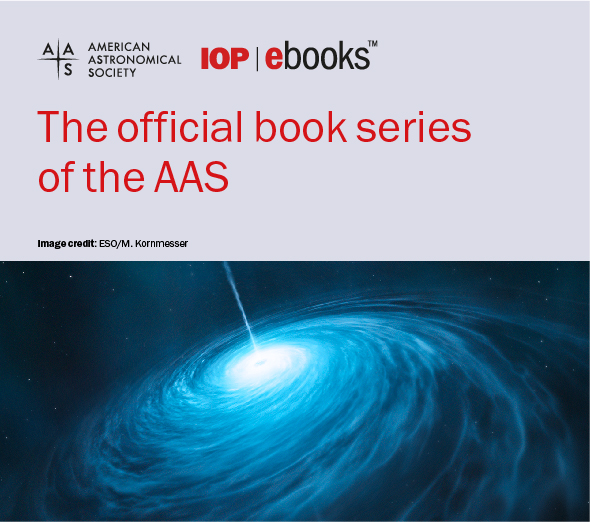AAS Letter to arXiv Regarding RNAAS Submissions
17 April 2019
Dear Dr. Verde,
We are writing to you in your role as head of the Science Advisory Board for the arXiv https://arxiv.org/help/scientific_ad_board, in the hope that you will be able to assist us in resolving an issue that has troubled our author community.
As you know, the AAS Journals instituted a new service, the Research Notes of the AAS, at the end of November 2017. The RNAAS https://journals.aas.org/research-notes/ was intended to allow for the publication of short notes, of interest to the community, but not sufficient for an article in the ApJ or AJ. Examples include brief observational results, negative results, or notes on minor technical items. In order to avoid the possibility of people confusing it with a venue for research articles rejected elsewhere, we instituted strict length limits (1000 words plus a figure or table). In order to be able to offer this service without fees for either author or reader, we use a streamlined review procedure. Instead of a lengthy peer review process, aimed at iterating until a paper met our standards, we provided a simple moderation policy where the RNAAS editor and his colleagues either accepted or rejected a submission. These policies have enabled us to offer the RNAAS free of author charges or subscription fees while still preventing an influx of inappropriate submissions.
The RNAAS has proven extremely successful. Since its inception we have published more than 340 research notes (as of the date of this letter), 48 in this year alone. The publication rate is steady and amounts to roughly one per business day, covering an enormous variety of topics. We have received strong positive feedback and more than a third of the Research Notes have already been cited, some many times (somewhat surprising for a publication without any requirement for significance of submitted work).
It was therefore extremely disappointing to discover that this year the arXiv is unwilling to allow our authors to submit their Research Notes to the arXiv. Many of our authors have asked for an explanation, via email and by posting on social media. The answers have not been entirely consistent, nor have they suggested a way to resolve the problem. Much of the initial fuss was because of a perception that RNAAS submissions were being treated differently than other short papers, though we understand this is not, in fact, the intention.
The closest to a consistent answer we have received is that the arXiv is simply enforcing an existing policy of requiring submissions to be at least three pages long. Apparently shorter submissions need to approved individually by the moderators and they found the resulting workload too onerous. We are not sure how many moderators are involved, but it appears that the complaint is that roughly one Research Note per astronomy moderator per week is an unreasonable burden. This seems implausible, especially as authors would be free to submit un-moderated papers to the arXiv without going through RNAAS.
We have not seen a significant drop in submissions to the RNAAS since this arXiv policy was enforced. From discussion, it seems clear that most of our community are simply assuming that the arXiv will eventually fix the problem and see no point in worrying about it. More troublingly, others have added an extra paragraph and a figure (or more) so that the long version of their Research Note will come in at three pages, and posted that on arXiv. Creating multiple, different copies of scholarly work is in no one’s interest, yet this is what our community are now learning is the ‘right’ thing to do.
In at least one case, an appeal from the authors on the grounds that their short paper was ‘important’ has led to approval, which now means that other authors want to know how they, too, can get an exemption from the usual rules. A recent response to a query about why that paper was allowed in reads:
“The article you mentioned above, 1902.02807, was accepted explicitly by the moderators on the basis of an appeal. Our current general guidelines is to not accept short submissions of three pages or less, but there are always exemptions to consider. In these cases we leave it up to the moderators to determine if the submission is both substantive enough and of sufficient interest to their readers.”
To us, this suggests that arXiv is not merely implementing a policy on page length, but making judgments based on the perceived quality of the paper or the prestige of the author. If this is the case, then this policy should be announced publicly so everyone is clear — but it seems hardly likely to reduce the burden on moderators. In another case, an author reports that a submission shorter than the page limit which did not mention RNAAS was accepted while those which did were rejected. As editors, we understand that any system will have inconsistencies — but these instances make it very difficult for us to explain to authors what arXiv’s policy actually is and how it will apply to their work!
This situation is highly unsatisfactory to us. It is the credit of the arXiv that it has become the usual way for astronomers to keep abreast of developments, but that means that when a venue is arbitrarily excluded the community suffers. You have undoubtedly noticed the reaction on social media, and the steady trickle of complaints to your staff which must be consuming much effort. We hardly need to point out that this is also a problem for the arXiv.
There are several ways that we could resolve this with a minimal amount of effort. So far we have received no encouragement to explore any of them, but we remain hopeful that something could be worked out. One possibility is that we could simply increase our limit for Research Notes to 1200 words, or slightly more, so that a typical Research Note slides in just above the lower limit. We are reluctant to do this because it works against the model of short contributions, but this is something we could discuss. To be honest, we have also been hesitant to do this because of a perception that the arXiv would simply change the rules to continue excluding RNAAS. More elaborate solutions would involve some level of cooperation.
We understand that arXiv is currently looking at new technological solutions which would allow different types of publication to be included. While welcome, this does not solve the current problem: our community of authors expects their work to appear on arXiv, and we do not have a sensible way of advising them how to achieve this. Waiting for a new technological solution does not solve the present problem.
We would request that the SAB consider allowing RNAAS to appear with work from the other AAS publications. Failing that, a clear statement of what the policy is and an assurance that it will not change for some period of time would allow us and other publications to plan accordingly.
Regards
Ethan Vishniac
Editor in Chief
The Journals of the AAS
&
Chris Lintott
Lead Editor
and
Editor of the Research Notes of the AAS




